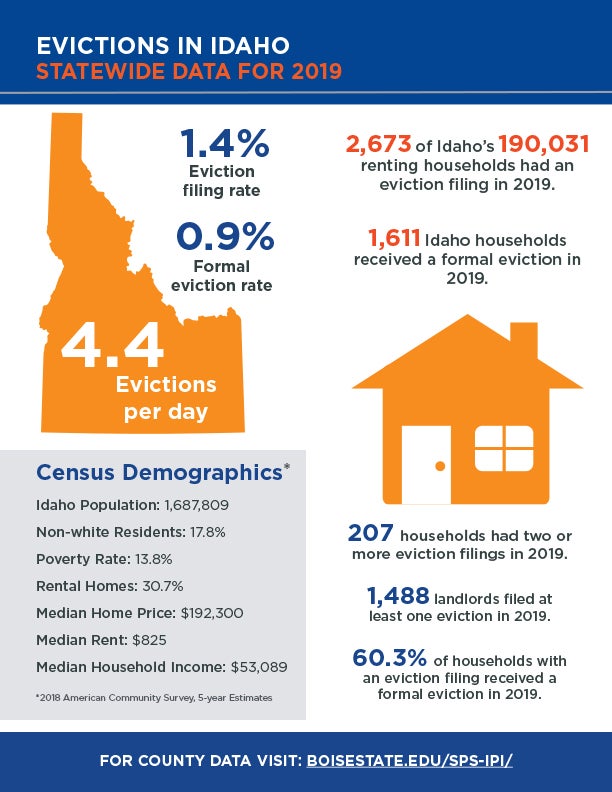
IPI’s first annual Idaho Eviction Study includes analysis of all statewide eviction filings for 2019. Data was obtained for all eviction court records from the Idaho Supreme Court.
Eviction Definitions
A formal eviction occurs when a court judgment results in the expulsion of a tenant from a residence.
An informal eviction occurs when a landlord carries out an eviction without a court judgment or a tenant vacates a residence under threat of expulsion. Informal evictions can occur before or after the legal eviction process is initiated by a landlord.
Summary of findings for 2019:
- Idaho averaged 4.4 evictions per day
- 2,673 (or 1.4%) of Idaho’s 190,031 renting households had an eviction filing.
- 1,611 (or .9%) Idaho renting households received a formal eviction.
- 207 renting households had two or more eviction filings.
- 60.3% of renting households with an eviction filing received a formal eviction.
- 1,488 landlords filed at least one eviction.
Eviction Prevention
The best way to prevent eviction is to intervene with resources before an eviction is filed. Tenants and landlords should attempt to negotiate agreements and keep the line of communication open. Community organizations and partnerships can work to raise funds for rent relief programs to provide tenants with short term assistance with rent payments.
Preventing eviction early in the process benefits tenants by enabling them to remain stably housed and avoid an eviction filing on their record. Community investment in early eviction prevention will likely increase housing stability, decrease the likelihood of homelessness, and save money on housing services long term.
View the Infographic (pdf)